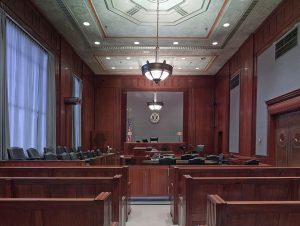 Anne Arundel County Police recently arrested an off-duty Maryland State Trooper after he was accused of sexual assaulting a woman and refusing to let her leave her own home. According to reports, the trooper and the alleged victim were longtime friends who apparently went out drinking together at a local bar. After leaving the bar, the pair took an Uber back to the woman’s home, and things allegedly became violent after the woman refused the trooper’s sexual advances. When county police officers arrived at the Pasadena home around 4 a.m., they observed the woman with injuries to her face, which gave police probable cause to make an arrest. Despite the violent nature of the charges, the trooper was released on his own recognizance by a District Court Commissioner, and is now scheduled to stand trial in late July at the Glen Burnie District Courthouse. He is charged with second degree assault, fourth degree sex offense and false imprisonment, and has been suspended with pay pending the outcome of the case and an internal investigation by MSP. The 34-year-old trooper is a 10-year MSP veteran who was recently assigned to the Westminster Barrack in Carroll County after also patrolling in Howard County.
Anne Arundel County Police recently arrested an off-duty Maryland State Trooper after he was accused of sexual assaulting a woman and refusing to let her leave her own home. According to reports, the trooper and the alleged victim were longtime friends who apparently went out drinking together at a local bar. After leaving the bar, the pair took an Uber back to the woman’s home, and things allegedly became violent after the woman refused the trooper’s sexual advances. When county police officers arrived at the Pasadena home around 4 a.m., they observed the woman with injuries to her face, which gave police probable cause to make an arrest. Despite the violent nature of the charges, the trooper was released on his own recognizance by a District Court Commissioner, and is now scheduled to stand trial in late July at the Glen Burnie District Courthouse. He is charged with second degree assault, fourth degree sex offense and false imprisonment, and has been suspended with pay pending the outcome of the case and an internal investigation by MSP. The 34-year-old trooper is a 10-year MSP veteran who was recently assigned to the Westminster Barrack in Carroll County after also patrolling in Howard County.
Police were originally called to the scene by the alleged victim’s husband, who dialed 911 in response to frantic texts from his wife stating that she was in danger. Although the alleged victim reportedly refused to sign a written statement, she did tell police that the trooper attempted to put his hands down her pants and up her shirt, attempted take her clothes off and then slammed her head on the kitchen counter multiple times when she refused. The Blog will continue to follow this case, and may post another article in the future when the case is resolved. As with most domestic violence cases, the victim will have a say in how this case is prosecuted, but not the final say. It is common in cases like this for the state to potentially dismiss the fourth-degree sex offense and false imprisonment charges pursuant to a plea agreement, but it is way too early to make an educated prediction about this particular case. If police did in fact observe injuries consistent with the alleged victim’s statement, then the state would likely proceed on the second-degree assault charges. The defendant could potentially avoid a conviction if the state is willing to place the case on STET with conditions such as anger management and alcohol education, but this could be a long shot based on these facts. If the alleged victim is uncooperative, recants or is unavailable things could swing more in the trooper’s favor, but his employment would still almost certainly be in jeopardy.
While assault in the second degree has a higher maximum penalty than 4th degree sex offense, a conviction in Maryland for sex offense in the fourth degree may require a person to register as a Tier 1 sex offender for 15 years. There are three tiers of sex offender registrants under Maryland law, with Tier 3 being the highest. Tier 3 offenders must register every 3 months for life, and Tier 2 offenders must register every 6 months for 25 years. In addition to 4th degree sex offense, other Tier 1 offenses include possession of child pornography and visual surveillance with prurient intent. Common Tier 2 offenses include distribution of child pornography, 3rd degree sex offense, human trafficking and sexual solicitation of a minor. Tier 3 crimes are typically violent offenses such as rape, child kidnapping, sex offenses with force and sexual abuse of a minor.
 Criminal Defense Lawyer Blog
Criminal Defense Lawyer Blog










